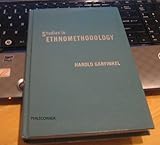2つの人名は全く関係ない。あしからず。
Wim Wenders “About Peter Falk”http://www.people.com/people/article/0,,20507708,00.html *1
ヴィム・ヴェンダースによるピーター・フォーク*2追悼。ウェンダースはピナ・バウシュが亡くなったときもいい追悼文を書いていたけれど*3、これも読んでいて涙腺が緩んでしまったよ。
話の中心は『ベルリン・天使の詩』。ジョン・カサヴェテスに電話番号を教えてもらって初めてピーター・フォークに電話をかけた時のこと;
それから、「元天使」の「お祖母さん」の話など。
Then the second call! Claire sat there crossing her fingers. Already after the second ring, a voice answered. [I hadn't even finished thinking about what I was going to say…]This voice was more familiar than any other one in the world! My heart skipped a beat. This WAS Columbo, with that unmistakable quirky grumble!
So I took a deep breath and introduced myself, said who had given me his number and told my story once more, in a nutshell: I was looking for an actor to play the part of en ex-angel, for a film that was already shooting.
"You're looking for what?"
"An ex-angel..."The voice on the phone started to giggle, and then the man laughed and it felt like he never was going to stop laughing. "An Ex-angel?! And you're already shooting?"
![ベルリン・天使の詩 [DVD] ベルリン・天使の詩 [DVD]](https://images-fe.ssl-images-amazon.com/images/I/510A75HG2NL._SL160_.jpg)
- 出版社/メーカー: ハピネット・ピクチャーズ
- 発売日: 1998/10/25
- メディア: DVD
- 購入: 1人 クリック: 88回
- この商品を含むブログ (96件) を見る
Michael Lynch “Harold Garfinkel obituary” http://www.guardian.co.uk/education/2011/jul/13/harold-garfinkel-obituary
マイケル・リンチによるハロルド・ガーフィンケル追悼文*4。
曰く、
ところで、タルコット・パーソンズの名前は出てきてもアルフレート・シュッツは言及されないというのはマイケル・リンチらしいか。
In the social sciences, methodology usually refers to systematic techniques for collecting and analysing data but, following Garfinkel, ethnomethodologists identified it with a broad range of ordinary abilities, such as taking part in conversational exchanges, navigating through traffic situations and recognising what is happening in specific social environments. The idea was that the totality of such practices builds up to the massive order of things and people we call "society", even though participants in particular practices do not necessarily aim for anything beyond the immediate circumstance.Garfinkel's major work, Studies in Ethnomethodology (1967), challenged "top down" theories which proposed that society was structured around relatively limited sets of rules and overarching values. He presented an alternative "bottom up" picture of society built from innumerable occasions of improvised conduct adapted to particular situations. Although they never fully accepted his vision, social theorists and philosophers, such as Anthony Giddens, Pierre Bourdieu and Jürgen Habermas, found it necessary to grapple with this challenge.
Ethnomethodologists showed how the formal methods and procedures that take place in courtrooms, scientific laboratories and workplaces are underpinned by everyday understandings, argumentative practices and embodied skills. Garfinkel challenged the idea that sociological methods were grounded in a specialised scientific rationality that was independent of the irrational and subjective basis of ordinary social conduct. Some sociologists worried that Garfinkel's vision dismantled the very idea of an objective science of society; others attempted to come to terms with how to study society as the created product of collective activity.

- 作者: Harold Garfinkel
- 出版社/メーカー: Pearson College Div
- 発売日: 1967/06/01
- メディア: ハードカバー
- クリック: 3回
- この商品を含むブログ (9件) を見る
*1:Via http://d.hatena.ne.jp/yomoyomo/20110711/peterfalk
*2:See http://d.hatena.ne.jp/sumita-m/20081217/1229491346 http://d.hatena.ne.jp/sumita-m/20110626/1309020925
*3:http://www.guardian.co.uk/stage/2009/jul/01/wim-wenders-pina-bausch-is-dead Mentioned in http://d.hatena.ne.jp/sumita-m/20090703/1246590544
*4:See also http://d.hatena.ne.jp/sumita-m/20110424/1303581555 http://d.hatena.ne.jp/sumita-m/20110429/1304048261